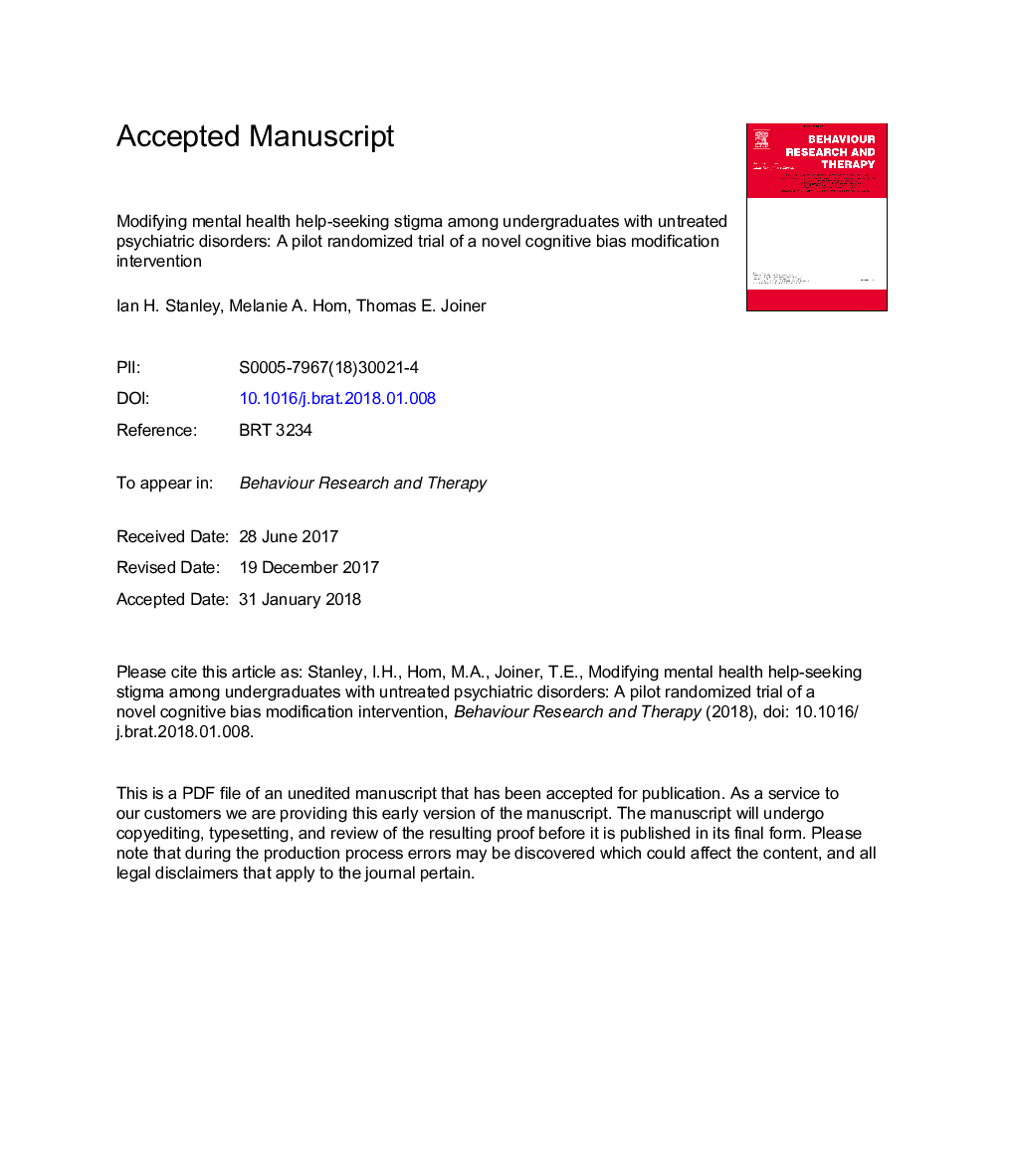| Article ID | Journal | Published Year | Pages | File Type |
|---|---|---|---|---|
| 7261859 | Behaviour Research and Therapy | 2018 | 40 Pages |
Abstract
Help-seeking stigma is a potent barrier to the utilization of mental health services. This study aimed to determine if, compared to a psychoeducation condition, individuals randomized to a novel cognitive bias modification intervention for help-seeking stigma (CBM-HS) demonstrate greater reductions in help-seeking stigma, as well as increases in readiness to change and help-seeking behaviors. Participants included 32 undergraduates with a DSM-5 psychiatric disorder who denied past-year mental health treatment. Post-randomization, three intervention sessions were delivered in one-week intervals (45â¯min total). Participants were assessed at baseline, mid-intervention, one-week post-intervention, and two-month follow-up. RM-ANOVAs were utilized among the intent-to-treat sample. There were no significant differences across time points between the intervention groups for help-seeking stigma and readiness to change. At two-month follow-up, 25% of participants initiated mental health treatment (29.4% CBM-HS, 20.0% psychoeducation). Strikingly, across groups, there was a statistically significant reduction in help-seeking self-stigma (F[2.214,66.418]â¯=â¯5.057, pâ¯=â¯0.007, ηp2â¯=â¯0.144) and perceived public stigma (F[3,90]â¯=â¯6.614, pâ¯<â¯0.001, ηp2â¯=â¯0.181) from baseline to two-month follow-up, indicating large effects; 18.8% achieved clinically significant change, among whom two-thirds were in the CBM-HS condition. Two brief, scalable interventions appear to reduce help-seeking stigma among undergraduates with untreated psychiatric disorders. Studies are needed to evaluate these interventions against an inactive control.
Related Topics
Health Sciences
Medicine and Dentistry
Psychiatry and Mental Health
Authors
Ian H. Stanley, Melanie A. Hom, Thomas E. Joiner,
